The 39 Best Thrillers Ever Made

Thrillers never, ever, ever go out of fashion. No matter what else is happening in cinema, audiences always want films that get their hearts racing.
To be fair, we're never likely to get bored of chases, suspense and drama. But what's often forgotten is that thrillers are where a lot of the most innovative and distinctive writers and directors do their best stuff – after all, thrillers live or die by keeping audiences intrigued, so filmmakers are always exploring new ways to ratchet up the stress.
The best thrillers are all about that build-up and release of tension, which is, ultimately, the fundamental joy of cinema (and yes, some other activities too). With more than a century of thrillers to choose from, stretching back to pioneers like Harold Lloyd, you need a guide to the genre. You're very welcome.
Blood Feud (1978)
Or, to give it its full title: Un fatto di sangue nel comune di Siculiana fra due uomini per causa di una vedova. Si sospettano moventi politici. Amore-Morte-Shimmy. Lugano belle. Tarantelle. Tarallucci e vino. Sophie Loren stars in Lina Wertmüller's pre-war love triangle set in Sicily, where the fascists have just come to power. Widower Titina (Loren), whose old husband has been murdered by the Mafia, can't make up her mind between a gritty attorney and a scumbag criminal. Naturally, it gets harder and harder to keep the two from finding out about each other.
Atlantics (2019)

Mati Diop's film is a lot of things at the same time. It's a ghost story about post-imperial West Africa, and a dewey-eyed love story about the power of the sea and a relationship which surges and rushes with the Atlantic's power, and a gritty social realist document of the migrant experience. It's also unbelievably beautiful to look at. In Dakar, Senegal, a futuristic new tower block is going up. A worker, Souleiman, who hasn't been paid in weeks, tries to escape to Spain and his love, Ada. She's betrothed to the wealthy Omar – but a tragedy strikes on their wedding day. Meanwhile Souleiman's disappeared. But not for long.
You Were Never Really Here (2017)

Are you after a violent, Scorsese-inflected character portrait of a man mentally checking out of a society that appals him and which is anchored around a virtuoso Joaquin Phoenix performance? Watch Lynne Ramsay's opus about a hitman who gets trafficked girls out of lives of abuse. It's the film Joker wishes it was. Hallucinatory, bold and frequently as beautiful as it is brutal, You Were Never Really Here is a modern masterpiece.
Whiplash (2014)
Some films are like a big cosy cuddle. Chicken Run, for instance. Other films are like being trapped in an excruciating nightmare which brings you out in a cold sweat at the mere memory of them. Whiplash is that kind of film. The first time I watched it I felt sick for about an hour afterwards, and I was certain it as one of the best films I'd ever seen. Andrew (Miles Teller), a Buddy Rich-idolising young drummer at Shaffer in New York, bursts into Terence Fletcher's (JK Simmons) band. But Fletcher pushes him harder and harder, breaking him into pieces in pursuit of perfection. Are you a rusher, or are you a dragger?
Crossfire (1947)
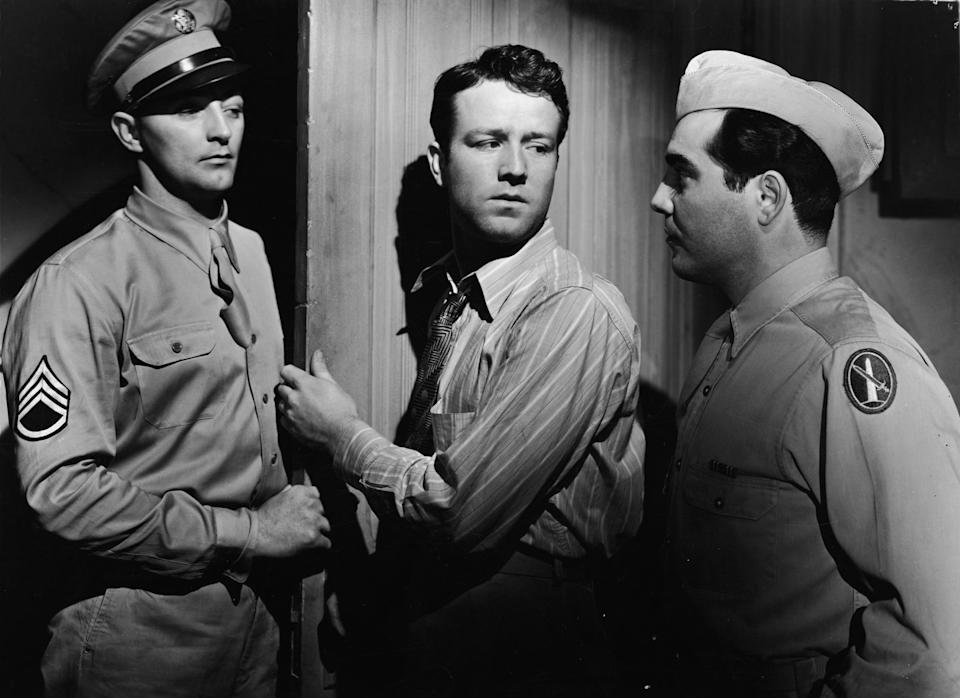
Two men beat a Jewish man to death, Captain Finlay (Robert Young) investigates and narrows the suspects down to a group of off-duty soldiers. Alarmed that his friend might be the prime suspect, Sergeant Keeley (Robert Mitchum) wades in. As the net closes around the real killers, things start to get even more ugly. This is a gritty look at antisemitism at a time when the world was still coming to terms with the Holocaust, and a stark reminder that that atrocity didn't start with people being marched into camps – it started with the indifference of ordinary people. It got a five Oscar nominations, and became the first B movie to get any nods from the Academy to boot.
Payroll (1961)

This heist movie set on Tyneside deserves to be seen more widely. Four crims get together to rob a payroll van but, as you might expect, not everything goes according to plan. There's a shootout, a love triangle, blackmail, inter-gang squabbling and a finale set in Norfolk: all the good stuff. Filmed on location around Newcastle, Gateshead and Whitley Bay, there's a noirish vibe to the blunt, brutal violence which stalks the streets of the north-east and a jazzy score by bandleader Reg Owen. It's Get Carter's even less glossy big brother.
The Talented Mr Ripley (1999)
Is there a more perfect tale of the pickle that is possible from putting on another man’s jacket than Anthony Minghella’s sumptuous adaptation of Patricia Highsmith’s 1955 novel? Tom Ripley (Matt Damon, reportedly stepping in for Leonardo DiCaprio) borrows some Princeton duds for a piano-playing gig at a fancy party, only to find that the Ivy League crest alone buys him entry into a world of festering privilege when shipping magnate Herbert Greenleaf mistakes Tom for a classmate of his wastrel son, Dickie (Jude Law). Herbert sends Tom to Italy to persuade Dickie – who’s having a lovely, sun-kissed time with his girlfriend Marge (Gwyneth Paltrow) – to come home. Tom soon finds out that borrowing another man’s jacket is very much a gateway high...
Get Out (2017)
Was Jordan Peele’s electrifying directorial debut unexpectedly shocking? Well, that very much depends on who you ask. Daniel Kaluuya stars as Chris, a young black photographer going to meet his white girlfriend’s parents (Catherine Keener and Bradley Whitford) in their country house in “liberal” Upstate New York. But all in the Armitage residence is very much not as it seems, and Chris soon finds that he has been summoned to the house for monstrous reasons. Peele’s film was a huge cultural talking point upon release, and was rightly lauded as an exploration of the insidiousness of racism that was both nuanced, stark and, depending on your own life experience, either startlingly eye-opening or all too familiar.
Parasite (2019)
Never has a film illustrated the upstairs-downstairs dynamic that undergirds modern society quite so literally and metaphorically as Bong Joon-ho’s clever, funny and not-a-little violent drama, famously the first non-English language film to win the “best picture” Oscar. Nor is it a surprise to discover that the Korean director first conceived the idea – about a poor family, the Kims, who infiltrate the life and house of a rich one, the Parks – as a play, given that it has the intensity and claustrophobia of a Greek tragedy, albeit with a few more laughs. But who is the parasite here? The wily Kims, or the lazy, exploitative Parks? Bong provides no quick answers, but plenty to think/wince about.
Zodiac (2007)
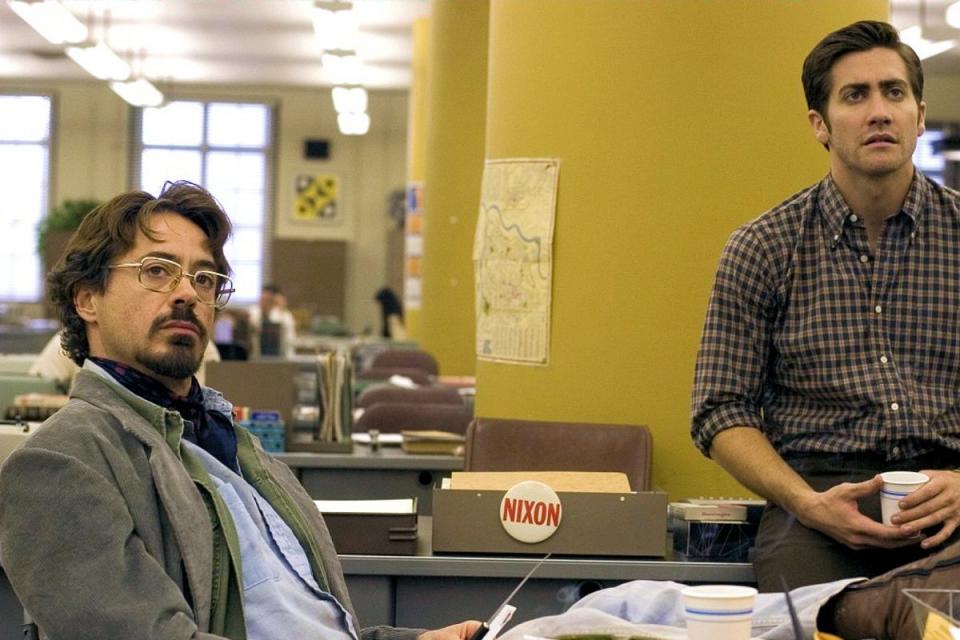
When he was a boy, David Fincher noticed that the police had been tailing his school bus. "Oh yeah," said Fincher's dad when young Dave got home. "There's a serial killer who has killed four or five people, who calls himself Zodiac, who's threatened to take a high-powered rifle and shoot out the tires of a school bus, and then shoot the children as they come off the bus."
So started his fascination with the Zodiac killer, and eventually this starry and masterful retelling of the manhunt which followed a string of still unsolved murders across California and Nevada – Jake Gyllenhaal, Robert Downey Jr and Mark Ruffalo lead it.
Kahaani (2012)
Put together for next to nothing, this word-of-mouth Indian hit is set in the aftermath of a poison gas attack on a Kolkata commuter train. Vidya Bagchi arrives from London looking for her missing husband Arnab, but it soon looks like there was a lot she didn't know about him. Suddenly she's drawn into a conspiracy involving rogue agents, mistaken identities and domestic terrorism. Kahaani is a lively, barrelling thriller which gets under the skin of the city with handheld footage and a DIY ethos.
Shallow Grave (1994)
Right, hold onto your hats, another big opinion coming through: this is Danny Boyle's best film. It's got all the ingredients that would make Trainspotting so huge in 1996 – a stylish look, a belting soundtrack from techno duo Leftfield, Ewan McGregor delivering every line of John Hodge's script with arch topspin – but here it's bolted onto a thriller engine which Hitchcock would have been proud of.
Three Edinburgh flatmates (McGregor, Christopher Eccleston and Kerry Fox) interview for someone to take their spare bedroom, eventually landing on the mysterious Hugo. But Hugo suddenly dies, and leaves behind a suitcase with a gigantic stack of cash in it. What do the flatmates do with a corpse and a fortune on their hands? They get rid of the former and keep the latter, obviously. And, just as obviously, their choice means the walls start to close in around them. It's a brilliantly claustrophobic and taut watch.
Deep Cover (1992)
Bill Duke's noirish tale of a drugs cop who goes undercover in Los Angeles to get inside a cocaine ring is built around a brooding performance from Laurence Fishburne as officer Russell Stevens Jr and a lugubrious but flinty turn by Jeff Goldblum as David Jason. (That's the man who becomes Stevens' self-appointed attorney when he gets deep into the cartel, not the beloved elder statesman of British sitcoms.) It's all about split loyalties and shifting identities, and the theme song, by Dr Dre and an extremely young Snoop Dogg, is a banger.
Dog Day Afternoon (1975)
A bungled bank robbery turns into a fiasco of a hostage-taking in Sidney Lumet's classic heist-without-the-heist film. In an attempt to get money for his trans partner's gender affirmation surgery, Sonny Wortzik (Al Pacino) and Sal Naturale (John Cazale, in his third collab with Pacino following the first two Godfather films) try to hold up a bank. Unfortunately, their third man runs off, and they turn up after all the money's been picked up. In a panic, they try to rustle up an on-the-hoof hostage situation.
As things get more and more out of hand, Sonny turns into an unlikely countercultural folk hero. This might be the definitive Pacino performance: his Sonny is desperate and wild and out of his depth, but his deeply decent and caring nature is always close to the surface. In Lumet's hands, Dog Day Afternoon as much a character piece as it is a thriller, as Sonny and Sal's incompetent attempts to make it big quickly fall apart.
LA Confidential (1997)
There are many pitfalls that come with shooting a mid-century film noir in the here and now. The genre – if you see it as such – relies on well-trodden conventions and tropes, and the directors who abide by them can too often veer into pastiche. Ruben Fleischer’s 2013 shoot-em-up Gangster Squad is a good example of that. The late, great Curtis Hanson’s 1997 hit L.A. Confidential is the opposite.
Based on the novel of the same name by James Ellroy, the greatest (and by extension, most nihilistic) crime scribe of our age, L.A. Confidential digs into the deep-seated corruption of the Los Angeles Police Department of the early 1950s. It’s a beautiful, fast-paced piece of cinema that fulfils all of your film noir expectations while still providing rich, nuanced characters and an intricately woven storyline. It was beaten to a few Oscars by Titanic but its popularity has endured. Ellroy is still approached by fans declaring their fondness for the film. His response? “'Listen, Granny: You love the movie. Did you go out and buy the book?' And Granny invariably says, 'Well, no, I didn't.' And I say to Granny, 'Then what the fuck good are you to me?'"
Fight Club (1999)
It’s very easy to shit on Fight Club nowadays. The legacy of David Fincher’s film, over twenty years since it was adapted from Chuck Palahniuk's novel, is equal parts prophetic and pathetic; it recognised the male rage simmering underneath an increasingly disenfranchised, consumerist, gender-progressive society, but failed to reckon with the true impact of that anger spilling over. Instead, sometimes despite its best intentions, violence is glorified, collective backlash is endorsed, and Brad Pitt is topless, providing toxic masculinity with a timelessly cool mascot. But however you think its messages have aged over the years, Fight Club is still one of the most important and impactful films of the past century. It also features one of the best twists in cinema history (and if you’ve somehow managed to avoid that spoiler, then we salute you.)
The Conversation (1974)
Surveillance expert Harry Caul does a routine job for a client, tailing a couple in a noisy San Francisco park. It's all pretty inconsequential, but one snippet of conversation won't leave him alone. The couple are in trouble, and he needs to come out of the shadows to help – or so he thinks. Impressionistic but gritty, poetic but cold-blooded, this is Francis Ford Coppola's other masterpiece of 1974, though as important as the direction is the way Caul's garbled recordings are reflected in David Shire's glitchy, oppressive electronic score.
Inside Man (2006)
Probably the most straightforward Spike Lee joint of all Spike Lee's joints, this heist thriller is still more tricksy and witty than most. A New York bank is held up by a gang of men all calling themselves variants on 'Steve', who set about dressing their hostages as painters and decorators, exactly like them. They set about smashing through the floor – but what are they really after? The would-be thieves' motives turn out to be a lot more upstanding than your average cash-grab, and the cast – Denzel Washington, Chiwetel Ejiofor, Jodie Foster, Willem Dafoe – is top notch.
Widows (2018)
Steve McQueen's update of the 1983 Lynda La Plante TV drama transplants the action over to Chicago, but keeps the central spine of the plot: four widows find out their husbands died in the process of ripping off a mob boss, and decide to step in to complete their $5 million heist. The trouble is, they'll need to pinch it from inside the boss's own house. This is a slower burn than some other thrillers here, and one that will reward your patience. Viola Davis, Michelle Rodriguez, Elizabeth Debicki and Carrie Coon star, with Liam Neeson, Daniel Kaluuya and Robert Duvall among the support.
Assault on Precinct 13 (1976)
John Carpenter's second film, a low-budget exploitation flick which followed gangland rioters in Los Angeles who attack a police station in the hope of taking out some officers, was an R-rated flop on release. But it gradually became a cult hit thanks to the things which would become Carpenter's trademarks: the invasion of an apparently unstoppable force; splenetic violence with an undercurrent of sly wit; and an absolutely belting soundtrack from Carpenter himself.
Berberian Sound Studio (2012)
Less a straightforward thriller than a feverish, hallucinatory 94-minute trip into the subconscious. Engineer and sound effects expert Gilderoy travels to Italy to work on a film about horses, but instead finds it's a giallo horror being made by an overbearing producer and an unnervingly exuberant director. We never see this apparently horrifying film, but director Peter Strickland lovingly catalogues the mechanics behind the camera. Don't go into it expecting to be guided by the hand – in fact, try not to expect a conventional plot at all – and just let it absorb you.
Uncut Gems (2020)
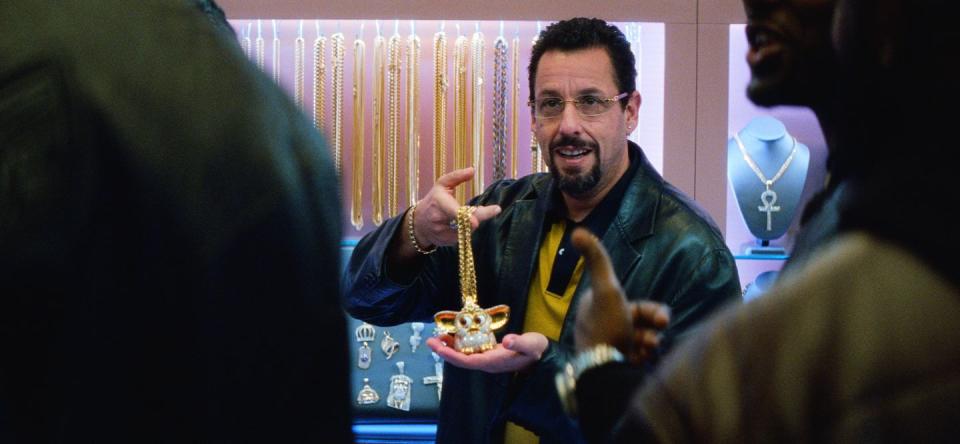
The Safdie Brothers – Josh and Benny – showed that they had the vision and unique tone to make an all-time great crime thriller with 2017's brilliant Good Time. Its follow-up, Uncut Gems, might very well prove to be that movie. Adam Sandler – yes, that Adam Sandler – is staggeringly good as Howard Ratner, a high-rolling, motormouth, diamond-dealing New Yorker who's deep in debt with all the wrong people and just about keeps the wolves from his door by making bigger and bigger bets. Until he gets his hands on an extraordinarily rare black opal, at which point the powder keg ignites. You're best off going in with no idea what's going to happen, but we'll just give you some key phrases: NBA star Kevin Garnett; mystical powers; naked kidnap; bum tattoo; diamond-encrusted Furby. Enjoy.
Gaslight (1944)
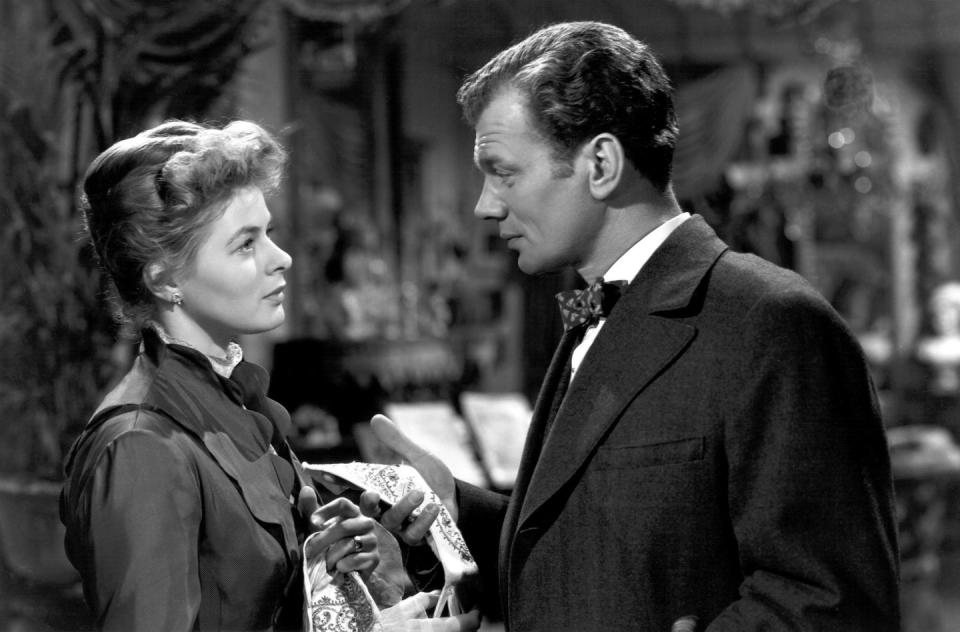
Like the husbands in Hitchcock's Rebecca, Suspicion and Shadow of a Doubt from the same period, Gregory Anton isn't exactly the ideal spouse. You can't trust him as far as you could throw him. His new wife Paula (Ingrid Bergman, on absolutely sparkling, Best-Actress-Oscar-winning form) shacked up with him after a fortnight-long whirlwind romance. She's got no friends having just arrived in London, and when odd things start happening around her, she starts to feel like she's losing it. But why do the gaslamps keep dimming? It's full of Edwardian froideur and noirish style, as well as being such an effective portrait of psychological abuse that it's where the term 'gaslighting' comes from in the first place.
Utøya: July 22 (2018)

The 2011 terrorist attack at a Norwegian Labour Party youth camp which left 69 people dead formed the basis of two films that came out at about the same time in 2018. By contrast with Paul Greengrass's more sprawling July 22, which also follows the events of the day, Utøya doesn't give right-wing extremist Anders Breivik any screen time aside from a couple of brief glimpses. Instead, Erik Poppe's film follows a teenager, Kaja, in a single take as the horror unfolds in real time around her. It's not exactly an entertaining romp – Utøya is less a thriller than an act of witness – but it is incredibly well made and gripping, in the most chilling way possible, while centring the experiences of the victims and survivors rather than Breivik.
Rear Window (1954)

Yes, we've got a fair few Hitchcocks on here, but he's pretty indisputably the master. Get hold of Strangers on a Train, The Lady Vanishes, The 39 Steps and The Lodger, but watch Rear Window first. It follows LB 'Jeff' Jefferies, a magazine photographer cooped up in his New York apartment during a swelteringly hot summer. Jeff becomes obsessed with watching his neighbours through their open windows, and seeing their lives play out as a series of cute vignettes – until he witnesses a murder, and takes justice into his own hands. But is his mind playing tricks on him? Grace Kelly is magnetic as Jeff's girlfriend Lisa, as is the Fifties soundtrack of Nat King Cole and Dean Martin.
North by Northwest (1959)

Cary Grant at the peak of his game – wearing one of cinema's greatest suits, no less – joins Hitchcock at the peak of his in this classic crime caper. A New York ad executive is mistaken for a government agent and pursued across the country by a (real) spy, as Grant's ineffable charm and Hitchcock's flair for producing an iconic action sequence (the crop duster scene is one of the most influential in movie history) culminate in a thriller many have copied but few have equalled.
The Manchurian Candidate (1962)

Suspicion and paranoia are quite big these days, as you might have noticed, so it's perhaps a good time to revisit The Manchurian Candidate. It's about the son of a prominent right-wing political family who becomes an unknowing assassin in a communist conspiracy, with Frank Sinatra playing a tortured platoon commander.
Blood Simple (1984)

Blood Simple is a noir thriller about a bartender who starts an affair with his boss's wife only for it to end in gunshot and bloodshed – quite literally a tense affair from start to finish. Frances McDormand's terrified facial expressions and whispered scenes make the directorial debut of the Coen Brothers one that stands the test of time – even if it was grossly underrated when it was first released.
The Silence of the Lambs (1991)

The film that launched the Nineties cinema obsession with psychopathic killers (Se7en, Scream, etc) as well as one of the most memorable bad guys ever committed to celluloid, it's easy to forget that the second Hannibal Lecter film was a taut-as-hell thriller that also featured brilliant performances from Jodie Foster, as the cop playing psychological tennis with Anthony Hopkins's cannibal, and Ted Levine as 'Buffalo Bill'. A clean sweep of the major Oscars (Picture, Director, Actor, Actress) made it one of the most successful films of the decade and it stands up just as well today.
Se7en (1995)

David Fincher's dark, seedy worlds are unrivalled in cinema and Se7en is up there with the best. A pair of detectives played by Brad Pitt and Morgan Freeman investigate a series of gruesome murders, each one symbolic of one of the seven sins: pride, lust, gluttony, wrath, sloth, greed and envy. Brutal, brilliant and with a final twist that 12 years later will still drop your heart to your stomach.
No Country For Old Men (2007)
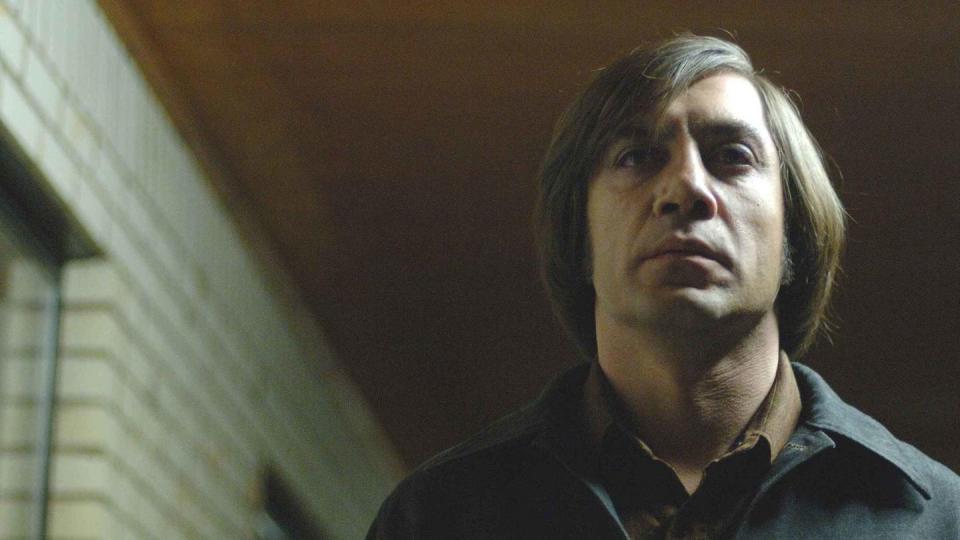
For our money the best film the Coen Brothers have ever produced, this majestically shot, thrillingly acted and unbelievably tense cat and mouse story sees Josh Brolin's chancer making off with some stolen money, pursued by a mercenary played by an utterly chilling Javier Bardem. The set pieces are mini masterpieces in their own right, including a dog chase at dawn that they'll be showing at film schools for decades to come.
Prisoners (2013)

Denis Villeneuve (the mastermind behind Incendies, Sicario and Arrival) creates a gritty and guilt-ridden world in Prisoners, the story of a father whose six-year-old daughter and friends go missing only for the police to release the primary suspect. Hugh Jackman, Jake Gyllenhaal and Paul Dano are a formidable trio in their portrayal of desperation and revenge.
Vertigo (1958)

Many of Hitchcock’s films pit a man against forces beyond his control, and Vertigo is no different. It’s just that in this case, it’s his own mind which entraps him. James Stewart’s traumatised detective, John ‘Scottie’ Ferguson, must track a friend’s wife who is in danger – but then she vanishes, leaving him chasing shadows and questioning his sanity. The action winds and loops back on itself, each twist shifting the ground beneath the audience just as the disorientating camerawork shows Scottie’s terror and psychosis. In 2012 it was named the greatest film of all time in Sight and Sound’s critics’ poll – it’s The Master’s masterpiece.
Peeping Tom (1960)

Martin Scorsese once said that the only two films anyone needed to see to understand directing were Federico Fellini's 8 1/2 and Peeping Tom. When Michael Powell's tale of an obsessive photographer came out, though, it was savaged, and pretty much stopped Powell's career dead. It was too perverse, too sadistic, too strange. Critics hated it: Tribune magazine said that "the only really satisfactory way to dispose of Peeping Tom would be to shovel it up and flush it swiftly down the nearest sewer".
But Scorsese's advocacy led to a reappraisal of it as a dark masterpiece. Mark Lewis, damaged by being experimented on by his psychologist dad, starts killing women and documenting everything he does on film. As he continues killing, the net starts to close around him. It's not your usual slasher, though there's a kinship between Peeping Tom and Psycho, which came out the same year. It's about how cinema is inherently voyeuristic, and digs into post-war Britain's sexually repressed psyche. If you like your thrillers cerebral and ambiguous, start here.
Locke (2013)

Way before Alfie Solomons wished his first mazel tov to Birmingham's underworld in Peaky Blinders, Tom Hardy and writer Steven Knight had already worked together on this rock-solid thriller with a difference. It all takes place over the course of a car ride from Birmingham to London, with only Hardy's Ivan Locke ever on screen and other characters heard through the speakerphone.
He's trying to do right by a woman he had a one-night stand with and who's now having his child, by trying to be with her at the birth. But he's also trying to supervise a gigantic pour of concrete in Birmingham at the same time. No, it doesn't sound like a high stakes game of life and death. It is utterly gripping though, with Hardy on extraordinary form and every one of its 85 minutes made to count.
Sorcerer (1977)
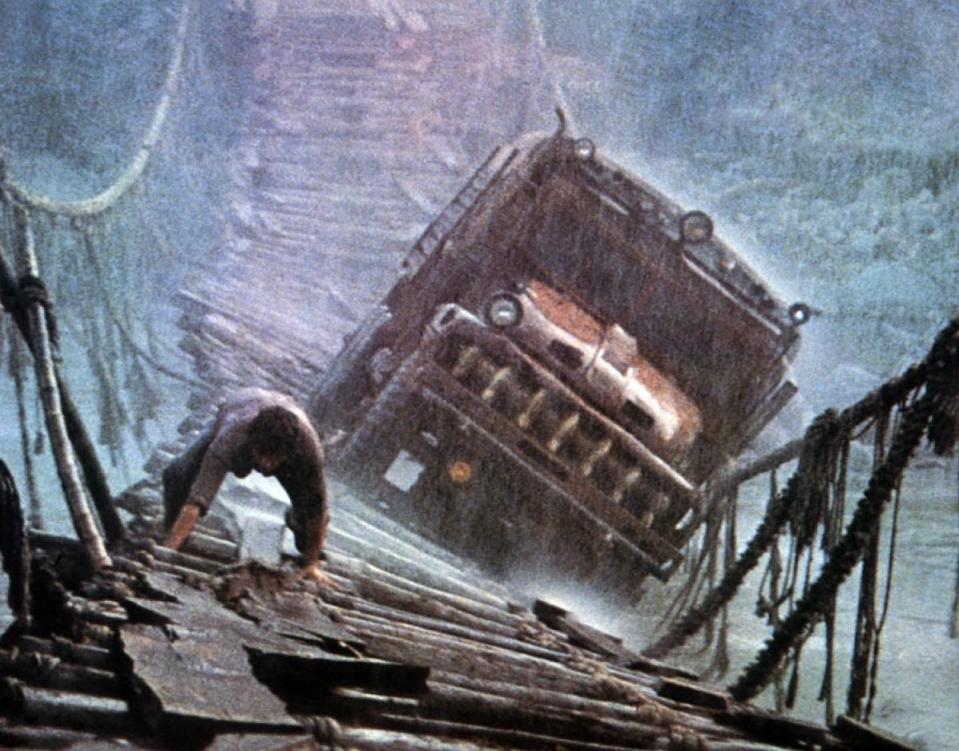
The Exorcist director William Friedkin's South American odyssey tanked on release – partially thanks to Star Wars coming out at the same time – but it's since enjoyed a renaissance. Four men escape to a tiny village after various separate nefarious deeds, and live in absolute destitution. But then they get a chance to escape: a driving job, taking some dynamite to an oil well to stop a fire. The only catch is that the nitroglycerine is old, and is 'sweating'. Any knock, nudge or jostle could set it off. And they've got 200 miles to go. Gulp. If you can get through the scene where a truck has to inch its way across a splintering rope bridge without gnawing on something, you're stronger than most. The soundtrack by Tangerine Dream is a belter too.
The Night of the Hunter (1954)
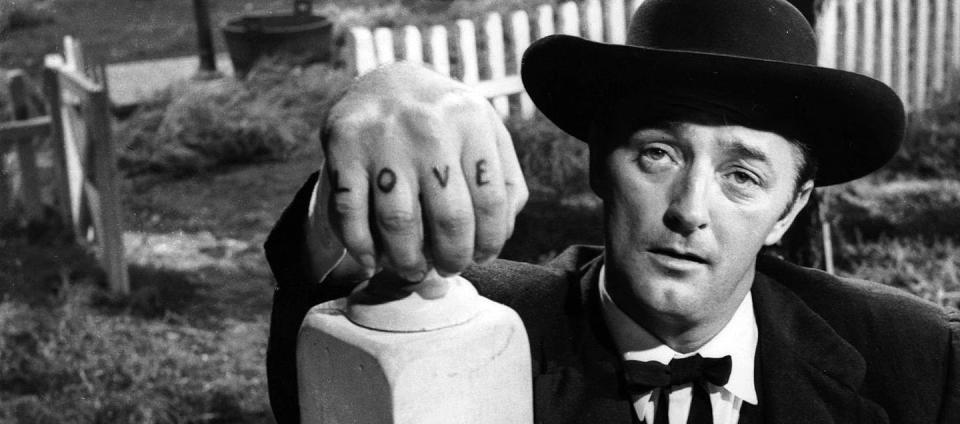
Robert Mitchum's besuited sinister minister Harry Powell is one of cinema's most unsettling villains, a black widower who drifts around West Virginia marrying for money and then killing his wives. He gets wind of a $10,000 bank robbery haul, but the man who stole it won't tell him where it is. When he dies, the only people who know are the dead man's children. So, he sets about wooing their mum and earning the good opinion of the town while winding up to strike again and find that money.
Director Charles Laughton once described Powell as "a diabolical shit," and Mitchum's ability to flip between the placid, godly, charming preacher and the hell-bent, brimstone-spewing misogynist who would happily murder some kids for a few quid is mesmerising. The Night of the Hunter is about all the good stuff – sin, redemption, desire and greed – and beautifully shot by Laughton to nod at German Expressionism and the silent film era. It doesn't look or feel much like many other films from the era, and it's ended up feeling timelessness.
Duel (1971)
Steven Spielberg's first feature-length film would be the peak of most other directors' careers. David Mann (Dennis Weaver) is driving out into the desert on a business trip, when a huge, dirty truck starts tailgating him. What starts as an irritation turns into a terrifying cat-and-mouse game, as it becomes clear that this truck driver – whoever he is – wants Mann dead. Out in the wilderness, Mann tries to outrun him. It's completely gripping, and Spielberg didn't forget the impact that the film had on his career: at the climax of his next film, Jaws, Spielberg mixed the truck's scream into that of the dying shark as it plummets to the ocean floor. Spielberg went on to bigger things, but he never made anything this lean, focused and claustrophobic again.
The French Connection (1971)
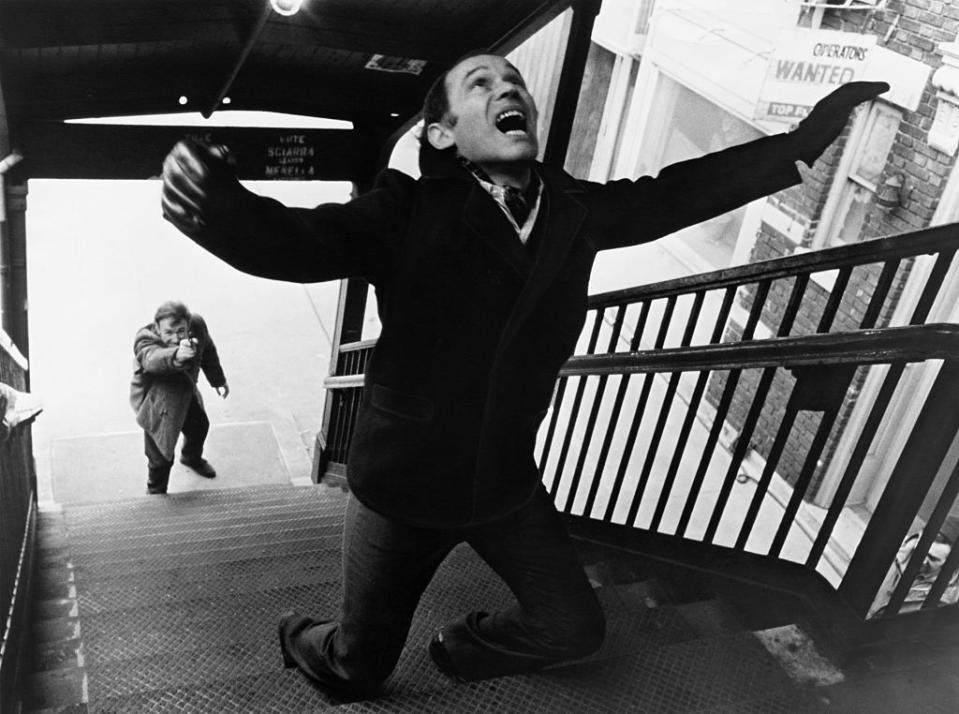
William Friedkin’s bruising tale of drug smuggling and murky morality in Seventies New York packs a knuckleduster-punch and swept up at the 1972 Oscars. The uncompromising ‘Popeye’ Doyle (a thunderous, perpetually enraged Gene Hackman) and his partner ‘Cloudy’ Russo (Roy Scheider) are on the tail of a huge heroin deal and are happy to take liberties with the rules if it keeps the streets clean. The chase sequence, in which Popeye nicks a car and hares through New York’s traffic on the tail of a hitman on the L-train above him, is the film in a nutshell: taut, stripped down, and all the more gripping for completely avoiding OTT spectacle. Finally, a word on Popeye’s pork pie hat and navy wool overcoat combo. Magnifique.
You Might Also Like


